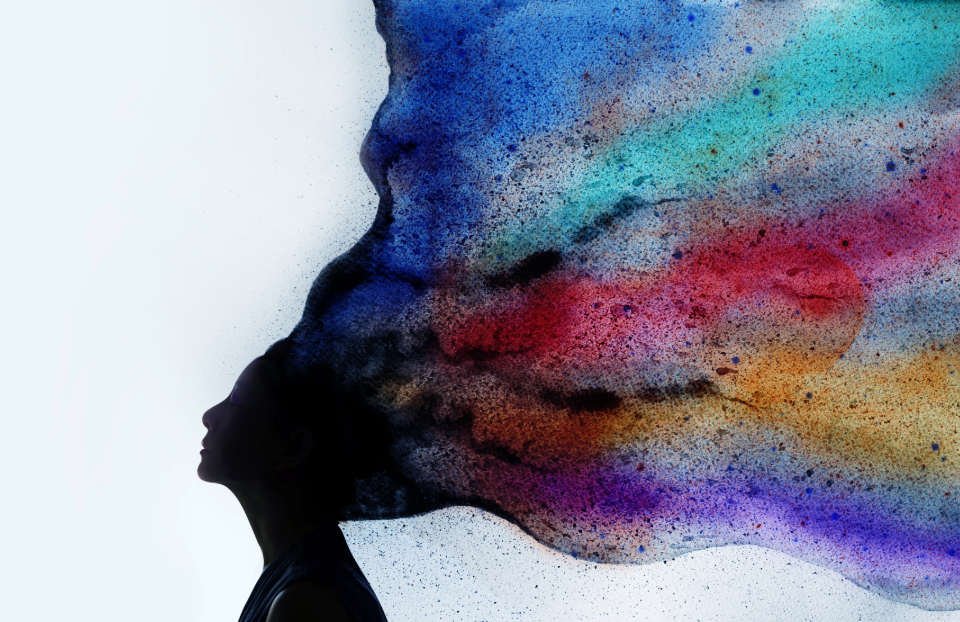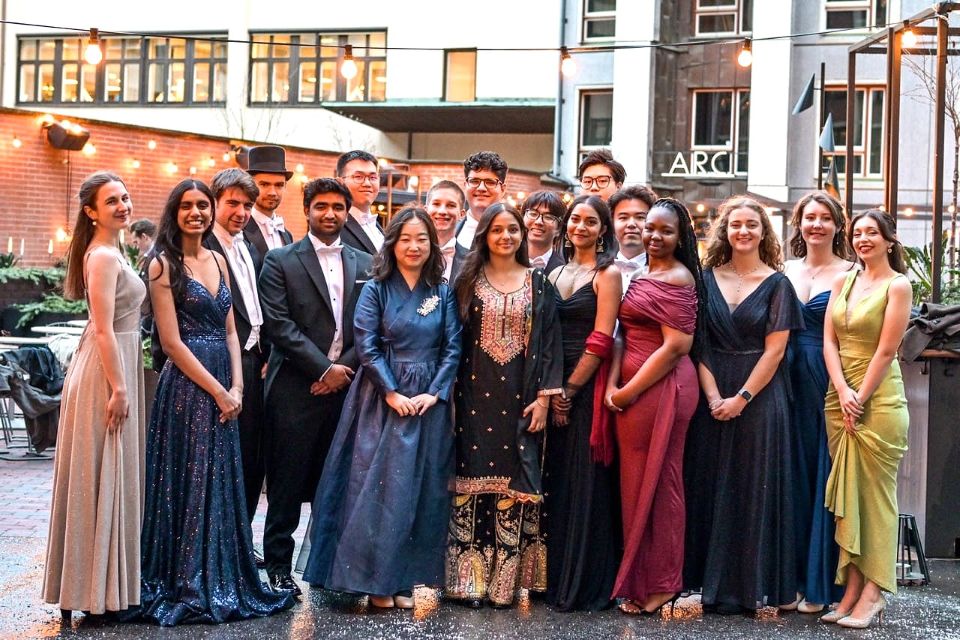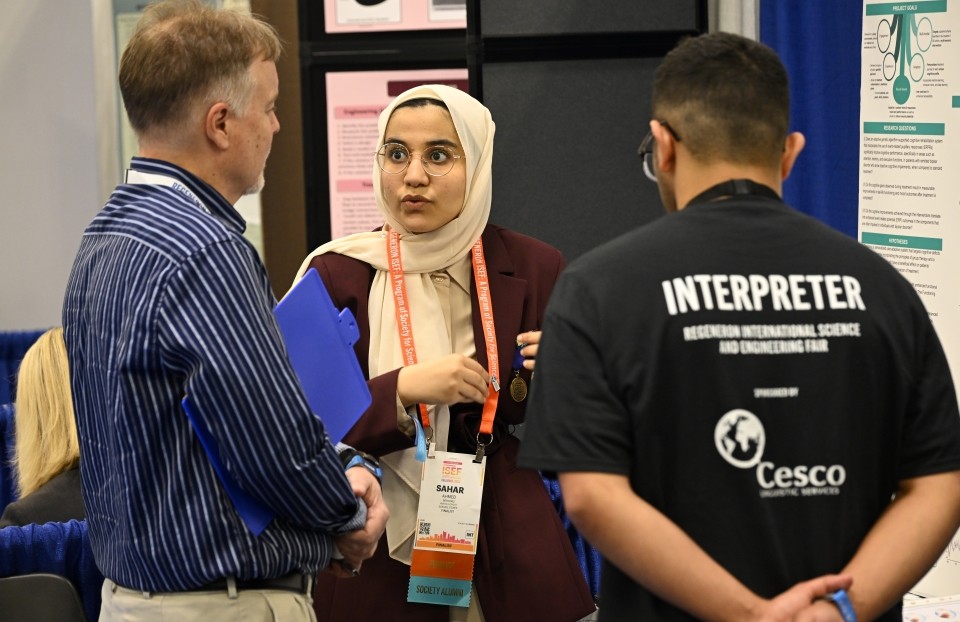Young scientists confront the growing mental health crisis

Note: This blog includes references to depression and suicide, which some readers may find difficult.
Mental health is an ongoing conversation, and May, Mental Health Awareness Month, brings discussions on the topic to the forefront across the country. First observed in 1949, this month of awareness was coined to help reduce the stigma surrounding mental health, according to the National Alliance on Mental Illness.
Mental illness can affect anyone and impacts many people every day. Below check out how a few 2025 Regeneron ISEF finalists are using their projects to advance the conversation around improving mental health.
In her Regeneron ISEF project, Norah Ahmed, 17, of Evansville, Indiana examined how gut microbiota could be connected to Major Depressive Disorder (MDD). Her project titled: “A Gut Feeling About Depression” focused on whether synbiotic supplementation, a combined use of prebiotics and probiotics, can potentially modulate gut microbiome composition and alleviate MDD symptoms. Previous research has shown that gut microbiota may influence neurochemical pathways linked to depression. These findings support a connection between gut health and brain function, suggesting that synbiotics could offer a potential new way to treat depression. Norah’s future research will look at how this approach could be tailored for varying levels of depressive symptoms and individual gut microbiomes. Her work points to the gut as a promising new frontier for personalized mental health treatments.
Matthew Casavant, 18, from Cross River, New York recognized mental illness as a global public health crisis affecting 1.88 billion people worldwide. He developed a personalized virtual reality therapy software called VRNT (Personalized Nature Virtual Reality—PnVR). According to Matthew, virtual reality nature therapy mitigates the risk of mental health illnesses through exposure to 360-degree nature content. PnVR personalization system, which leverages three interactive preference assessments, outperforms standard non-personalized therapies in improving mental health outcomes. Matthew’s approach has the potential to transform virtual reality mental health therapies, while aiding particularly vulnerable populations. Matthew’s project highlights how emerging technologies like virtual reality can be used to create more personalized, accessible mental health support.
Winston Fan, 17, from Iowa City, Iowa uses an AI-driven system called PsychSPT to address gaps in mental health assessments. This project in the category of Behavioral and Social Sciences, divides mental health assessments into three core tasks: representation learning, classification, and reasoning. According to Winston, current studies fail to holistically address these tasks, neglecting key criteria such as practicability, scalability and accessibility for health care systems. PsychSPT was designed to offer accessible, automated tools for multiple uses such as tracking individual mental health trends over time. Winston’s project shows how AI can streamline and be used in mental healthcare.
Dillan Uphoff, 18, from Taos, New Mexico set out to address the “brain fog” some individuals experience when contemplating suicide. For his project in the category of Engineering Technology: Statistics & Dynamics, Dillan proposed improvements to The Rio Grande Gorge Bridge design to make it less of a destination for suicide attempts. His design includes features to make the bridge lighter weight, more environmentally conscious and is comprised of a cost-efficient suicide and vandalism deterrence system. His project recommendations also include a walkway railing redesign, a recycled aluminum mesh fence with minimal optimal impact viewing windows, low impact lighting, and low-cost sensors that trigger visual, tactile and auditory alerts. Dillan’s work is a powerful reminder that thoughtful engineering can play a role in suicide prevention and spark broader conversations about mental health and safety in public spaces.
You can find more 2025 ISEF finalists’ projects focused on mental illness and health here. Also, If you or someone you know is struggling and needs support, you can call NAMI at 1-800-950-6264 Monday through Friday from 10a.m. to 10p.m. EST or text 741-741 to connect with a crisis counselor, available 24/7. You can also call the 24/7 National Suicide Prevention Lifeline at 988 for help.


